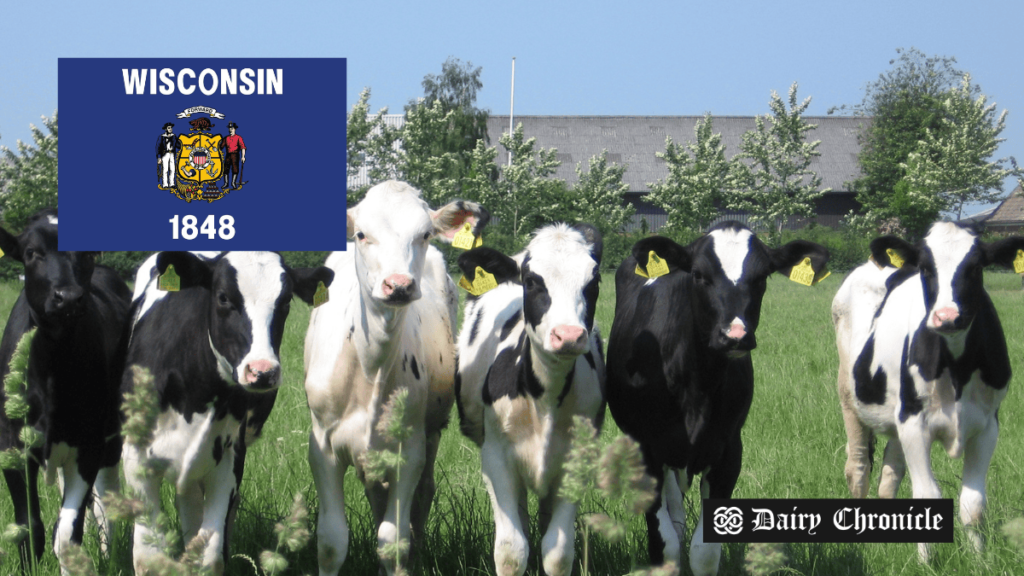Dairy farmers in Wisconsin are facing a potential crisis as key provisions of the federal Farm Bill are set to expire, leading to concerns about a “dairy cliff.” If the legislation is not renewed by January 1, 2025, the government may be forced to purchase milk at prices exceeding double the market rate, creating economic challenges for farmers and risking a shift in consumer behavior towards non-dairy alternatives. With Congress at an impasse, stakeholders are advocating for urgent action to secure the future of Wisconsin’s vital dairy industry.
Dairy farmers in Wisconsin, United States, are anxiously watching the calendar as significant parts of the federal Farm Bill are set to expire at the end of the year. The Wisconsin Farm Bureau, the state’s leading agricultural organization representing farmers, warns that failure to extend the legislation could trigger a “dairy cliff” that threatens the stability of the state’s vital dairy industry.
Tyler Wenzlaff, the director of national affairs for the Wisconsin Farm Bureau, explained that if the Farm Bill is not renewed, “permanent law” from the 1940s would come into effect. This would require the government to begin purchasing milk at prices exceeding double the current market rate, according to an analysis by the American Farm Bureau. Current milk prices hover around $20 per hundredweight, while the government would be forced to purchase at rates above $41.
“This scenario would exacerbate the existing issue of declining fluid milk demand,” Wenzlaff stated. He noted that while higher government prices might provide an immediate financial boost for farmers, the long-term repercussions could alienate consumers, prompting them to shift to non-dairy alternatives that they have grown accustomed to. The trend of reduced fluid milk consumption has been attributed to changing consumer preferences, with many opting for plant-based alternatives or flavored milk products.
As the deadline approaches, Wenzlaff emphasized the urgency of the situation, stating, “The potential loss of market share could be devastating. Consumers might either revert to buying milk or stick with the alternatives that have worked for their families.” He also mentioned that the government could begin assessing the costs of milk purchases as soon as Tuesday, potentially amounting to hundreds of billions, if not trillions, of dollars. “The math is daunting. We could see our taxpayer dollars allocated to purchase milk at inflated prices instead of supporting innovative agricultural practices,” he added.
The Farm Bill, which is typically renewed every five years, was originally set to expire last October. Congress granted a one-year extension, but lawmakers are currently at an impasse, with both parties exchanging blame for the delay. “The Democrat party does not want to give the Republican party a win in an election year,” remarked Rep. Derrick Van Orden, R-Prairie du Chien. Conversely, Rep. Mark Pocan, D-Madison, criticized the Republican Congress for its inability to finalize the bill, arguing that the political gridlock has put farmers at risk.
Senator Tammy Baldwin, D-Wis., expressed her commitment to working across party lines to ensure that farmers, ranchers, and growers receive the necessary support. “I’m fighting for America’s Dairyland in the Farm Bill, including helping dairy businesses innovate, increasing mental health resources for farmers, and ensuring our rural communities have access to clean water,” she stated. Baldwin’s efforts focus on addressing not only economic challenges but also the mental health crisis affecting farmers, a pressing issue exacerbated by fluctuating markets and weather events.
Some programs linked to the Farm Bill are set to expire at midnight, affecting various agricultural sectors, including soybean farmers, who are particularly vulnerable as they are not covered by support programs established under the 1949 laws. Wenzlaff explained, “Soybeans weren’t covered back in 1949, and under the support programs, the government would normally purchase those if they fell below a certain price point. For soybeans, that doesn’t happen anymore.”
As Wisconsin’s dairy industry faces these uncertain times, the need for a timely resolution to the Farm Bill negotiations becomes increasingly critical to secure the future of one of the state’s cornerstone industries. With dairy farmers contributing significantly to the state’s economy—over $45 billion annually—the impact of the impending “dairy cliff” could reverberate far beyond the farm gates, affecting jobs, rural communities, and the overall agricultural landscape of Wisconsin.



